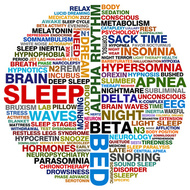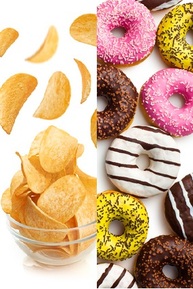 We often think of our health in purely physical terms, but as a Reflexologist, I have a strong view that health also has a mental or psychological dimension. Having a strong belief in our ability to manifest our desires and the means to manage our thoughts can have a dynamic and very significant effect on our mental and physical health. I have a saying on my wall which reads: "There is a difference between wishing for a thing and being ready to receive it. No one is ready for a thing until he believes he can acquire it.” I’m not sure where it came from or who said it, but I do think that our beliefs have a vital impact on our results. Does your belief support you desires and aspirations? Do you really believe that it will all happen for you some day or do you think it will never happen for you? Go inside yourself for a moment and ask yourself just how strongly you believe that you will be able to achieve your dreams and goals Give yourself a score of 1 – 10 where, 1 = not very strongly at all and 10 = 100% certainty. If your score is less than 10 then you need to work on your belief. To create a strong belief you need three things: 1. To know that it is POSSIBLE to achieve your objective 2. To know that you are ABLE to achieve your objective 3. To know that you DESERVE to achieve your objective Know it’s possible Everything is POSSIBLE, but you must feel that it is possible for you, at this moment. You cannot prove a negative, therefore you can never prove that you are incapable of anything, you can only say that you have not achieved it YET. Do not be too quick to decide what is impossible. Know you are able Avoid putting limitations on what you think is possible. Do you have an age beyond which you think something will be impossible? Do you think you are less likely than friends your age to be able to achieve your golas? These beliefs are arbitrary judgements you have made about yourself and they are just as likely to be WRONG as they are to be right. Banish them, completely, NOW. Keep an open mind. Be positive in your thinking. And open yourself up to the abundant possibilities on offer. Know you deserve it Do you deserve to realise all your dreams and aspirations? If you don’t feel you deserve it, why not? Do you have a belief system that says: things need to be difficult to have value; or you never get what you really want; or everyone is better and more deserving than you; or bad things happen to good people? If your health would benefit from a boost why not try a Reflexology session, because if you don't give it a try, you'll never know what benefits you may get from the treatment. If you'd like to know more about Reflexology click here.
0 Comments
 As a Reflexologist, I always ask clients about their sleep patterns, because a good night's sleep is so important to general well-being. And better sleep is often one of the additional benefits of a Reflexology treatment as the majority of my clients report having had a great night's sleep after a treatment. The Harvard Women’s Health Watch suggests six reasons to get enough sleep: * a good night's sleep can help learning and memory; * chronic sleep deprivation may cause weight gain by affecting the way our bodies process and store carbohydrates, and by altering levels of hormones that affect our appetite; * insufficient sleep can lead to poor performance and accidents; * sleep loss may result in irritability, impatience, inability to concentrate, and moodiness; * serious sleep disorders have been linked to hypertension, increased stress hormone levels, and irregular heartbeat; * sleep deprivation alters immune function, including the activity of the body’s killer cells. Here are ways to get a better night's sleep: 1. Have a sleep routine Going to bed and waking at the same time (even at weekends) helps to improve your ability to sleep and the quality of that sleep. Avoid evening naps by keeping active until bedtime. 2. Get out into natural light Long days in the office under artificial light can make your brain sleepy, while hours in front of a TV or computer screen can suppress the body's production of melatonin, making it harder to sleep. Get out during the day - walk to or from work or go for a walk at lunchtime - even in winter when light levels are poor, this will help your sleep patterns. The exercise you get from your walk will also help you sleep better at night. 3. Make sure your bedroom is sleep friendly Keep your bedroom cool and well ventilated. Keep your bedroom dark - use blackout blinds or a mask to keep light out. Have your bedroom as quiet as possible, and if you can't avoid noises from neighbours or barking dogs, use soothing sounds or earplugs to mask external noise. And, of course, make sure your bed is comfy. If you wake with a sore back or aching neck it may be a sign that you need a new mattress or a different pillow. 4. Prepare for bed Have a bedtime routine: as well as brushing your teeth and getting ready for bed, incorporate relaxing activities into your bedtime routine: try doing a 15 minute relaxation, or some gentle yoga exercises. To allow you to be totally relaxed, empty your head: write down all the things that you want to do tomorrow, or anything that is worrying you, or anything that you need to think about, or anything that you need to remember to do. Get it all down on paper, so there's nothing for your mind to chew on as you try to get to sleep. 5. Eat yourself sleepy For a better night's sleep avoid big meals and fatty food late at night, alcohol, caffeine, and smoking all of which will disrupt sleep patterns. If you find yourself waking at night for a snack, try having a light snack before bed - a handful of almonds or a couple of oatcakes with half a banana, honey, a slice of turkey or cheese may help keep your blood sugar stable throughout the night. You might also want to have a cup of chamomile tea or a glass of warm milk. 6. Get rid of anxiety If worry keeps you awake at night, this is may be a stress problem, not a sleep problem and you need to address the source of your worry. You may benefit from meditation, or you may need to learn how to manage your thoughts, or perhaps enrol on a stress management course. If it's a problem and you're not sure what to do for the best, go to your GP for advice. 7. Try a Reflexology treatment Sometimes it's nice not to have to do everything yourself, so consider getting support from a Reflexology treatment. Many clients talk about getting a great night's sleep after a treatment - it's almost as it a Reflexology session has the effect of pressing a reset button in the body. That's not to say that you won't need to take action yourself, but you know what they say about a problem shared is a problem halved! If you're experiencing poor sleep and would like to try Reflexology to discover if it will help, click this link to email me and ask about my special discount for new clients. Wishing you sweet dreams.  In 2007 a study* found that, ‘Each 2% increase in the intake of energy from trans unsaturated fats, as opposed to that from carbohydrates, was associated with a 73% greater risk of ovulatory infertility’. Now, I’m not a scientist, but it seems to me that these are statistics worth taking into consideration if you’re trying to make a baby. So what are trans fats? Trans fats are rare in living nature, but common in food production. They are created when liquid oils are processed into solid fats like hard margarine, or commercial frying fats. Now you may not use margarine or solid frying fat at home, but trans fats are extensively used in processed foods because they extend shelf life and also because they can be used repeatedly without breaking down. Why are trans fats bad? Well I’m not an expert, but from the research I’ve done, it seems that trans fats are likely to: increase bad cholesterol and reduce good cholesterol; promote inflammation and the formation of blood clots; increase blood pressure; and are linked to increased heart disease, obesity and higher incidence of infertility. Health authorities worldwide recommend the consumption of no more than trace amounts of trans fats daily. Where might you find trans fats? They can be found in processed foods and particularly in commercial baked goods (cakes, pies, biscuits, crackers, bread, etc), snack food, margarine, sweets and fast foods. Just 4 grams a day could affect fertility! To give you an idea of what that means, a doughnut has around 5grams, a packet of crisps 3 grams, and a portion of french fries 8 grams. To avoid trans fats in the food you purchase, check the label for hydrogenated or partially hydrogenated fats and shortening. And beware, you may also want to check your salad dressings and breakfast cereal for trans fats! Of course, not all fats are bad, so make sure you get your daily dose of omega 3, 6 and 9 fats: substitute your crisps or crackers for flaxseed or walnuts and swap your pies for fish. And this warning isn’t just for the ladies: trans fats have also been implicated in lower sperm count and quality, as sperm cells can be extremely sensitive to diet and toxins. But not everyone agrees with this research, Marion Nestle Phd, Professor in the Department of Nutrition, Food Studies and Public Health at New York University is reported to have said, “I am always sceptical when I hear the claim that a particular food or food component has a very large impact on health.” Given that foods containing trans fats seem to be on the unhealthy list anyway, I’d say it’s sensible to avoid them and go for options containing the healthier omega 3, 6 and 9 fats. And if you can get the man in your life to give up crisps, crackers, cakes and sweets, even better. *American Journal of Clinical Nutrition, Jan 2007 ,”Dietary fatty acid intakes and the risk of ovulatory infertility.” Chavarro JE, Rich-Edwards JW, Rosner BA, Willett WC. |
|
